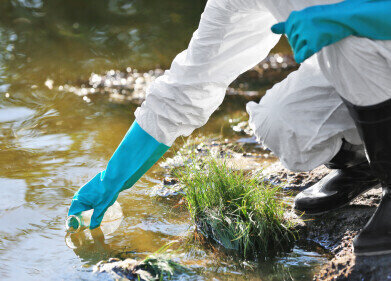Portable/Field Testing
Which Meat is the Worst for the Environment?
Jun 11 2018
By now, we’re all well aware that a carnivorous diet has a negative impact on the environment. Going meat free, even just for a day a week can reduce your carbon footprint along with your contribution to multiple detrimental factors. But are some types of meat less harmful than others? Read on as we discuss which meat is the worst for the environment.
Why greens are greener than meat
While grazing cows don’t conjure up the same feeling of guilt as a petrol guzzling traffic streams or emissions churning out of a power plant, raising animals for food has a staggering impact on the environment. According to PETA, at least 51% of global greenhouse gas emissions are down to animal agriculture. The transport of meat is one factor, along with the production of feed for the animals.
But emissions aren’t the only problem. Water consumption is huge when it comes to farming animals for food. It’s needed to water and grow crops for animals to eat, clean the farms and factories and of course for animals to drink. It’s estimated to take more than 2,400 gallons of water to produce 1 pound of beef. By going vegan, PETA estimates an individual can save 219,000 gallons of water each year.
Wastewater and fishing
Similarly, the meat eating uses vast amounts of land – 20 times that of a vegan diet – and produces tons of animal waste, with factory farm runoff polluting rivers and lakes across the world. The article ‘Analysis of Wastewaters Following U.S. EPA 200.7 using the Avio 500 ICP-OES’ takes a more in-depth look at wastewater control.
Fishing is no rosy picture either, with commercial fishing methods destroying coral reefs and killing countless “bycatch” animals”. Fish farms also release harmful substances into marine ecosystems, while most farmed fish like salmon are fed other marine species to keep up with their carnivorous diet.
Not all equal
That said, there are some meats which are worse than others. In a recent study, researchers spent nearly a decade analysing 148 specially selected assessments of animal food production’s environmental impact. They used for broad metrics to compare the overall impact of each meat:
- Energy use
- Greenhouse gas emissions
- Potential to contribute excess nutrients to the environment
- Potential to emit substances that contribute to acid rain
The study found that farmed shellfish and molluscs were the least taxing on the environment, along with wild-caught small fish. On the other end of the scale, industrial beef production and farmed catfish produce around 20 times more greenhouse gases than the less-polluting meat and fish.
So, if you can’t stretch to a meat-free diet, how about avoiding beef and large farmed fish as a compromise?
Digital Edition
IET 34.2 March 2024
April 2024
Gas Detection - Biogas batch fermentation system for laboratory use with automatic gas analysis in real time Water/Wastewater - Upcycling sensors for sustainable nature management - Prist...
View all digital editions
Events
Apr 30 2024 Melbourne, Australia
Apr 30 2024 Birmingham, UK
May 03 2024 Seoul, South Korea
May 05 2024 Seville, Spain
May 06 2024 Minneapolis, MN, USA




-QED-Image.jpg)














